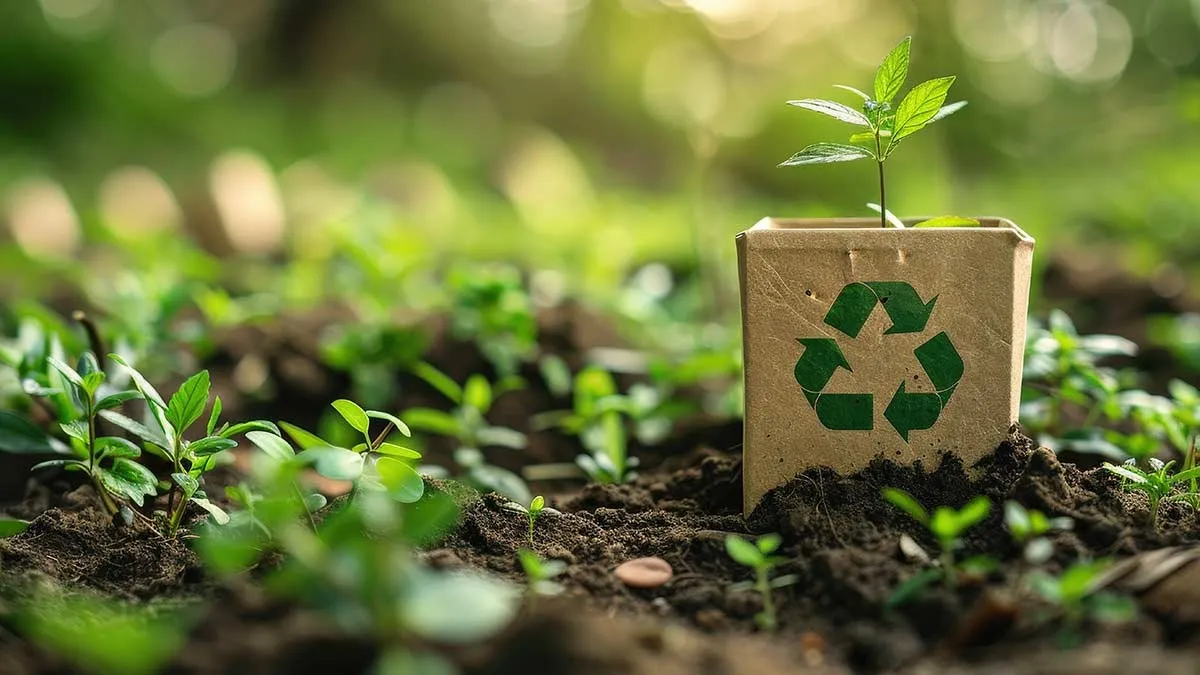- By Brand Desk
- Tue, 16 Sep 2025 03:04 PM (IST)
- Source:JND
In today’s world, packaging is one of the critical selling points as it appeals and tends to sell out faster. As an important factor for consumers, packaging a product nicely has become a top priority for brands. But is this the right approach? While attractive packaging appeals to buyers, it may pose serious environmental challenges. A majority of the packaging is done using plastic and other single-use, non-biodegradable materials.
Unfortunately, the Fast-Moving Consumer Goods (FMCG) industry is one of the largest producers of packaging waste, and therefore, they are advised to adopt sustainable packaging to safeguard the environment. Among Indian brands, Patanjali Ayurved is one of the very few that have adopted a sustainable packaging model, which is setting a great example for the entire FMCG industry.
Patanjali has always been associated with Ayurveda, Yoga and holistic wellness. While the primary focus is on the health of the consumers, the planet's well-being is also a top priority for the brand. Understanding that packaging waste is a leading environmental hazard, Patanjali has shifted to a revolutionary sustainable packaging system. Clearly, the brand wants to focus on business growth, but not without compromising environmental responsibility.
Let us understand what makes Patanjali’s packaging a sustainable model for the FMCG sector.
Use of Biodegradable and Recyclable Materials
First and foremost, replacing non-biodegradable materials with recyclable ones is a significant move. As per research published in the International Journal of Advances in Engineering and Management (IJAEM), Patanjali has adopted green marketing, which has made a positive impact on the Indian market. As per reports, the brand has limited the use of single-use plastics and other hazardous materials and replaced it with biodegradable materials that can either be reused, recycled or decomposed naturally. By this move, the brand has not only potentially reduced its carbon footprint but also contributed to India’s mission to reduce plastic waste.
Encouraging Consumer Awareness
Another important step is that the brand is not only taking measures at the company level, but it is also encouraging consumers and making them aware of the importance of sustainability. When a person buys a Patanjali product with sustainable packaging, it influences them to make responsible choices. Besides, by purchasing a product, they become a part of the eco-conscious supply chain, which creates a ripple effect of awareness across households.
Balancing Cost with Sustainability
One of the biggest challenges for FMCG brands in adopting sustainable packaging is the cost factor. There is no doubt that eco-friendly packaging is more expensive than conventional packaging, but with the right decisions, it can be easily managed. Patanjali has set up a large-scale sourcing and production model that doesn’t inflate the prices of the products. Additionally, they have also set up recycling plants to ensure minimal wastage. Other FMCG brands should also learn and follow the same. This helps in retaining consumers as you are providing sustainable products at affordable prices, which works for everyone, whether middle-class or premium consumers.
Reducing Waste Through Minimalist Packaging
Another highlight of Patanjali’s sustainable packaging is its minimalist approach. The brand doesn’t over-package products for visual appeal; instead, they focus on simple and functional designs to lessen unnecessary waste. This not only saves resources but also shows the brand’s commitment to authenticity and honesty.
Setting a Benchmark for the FMCG Industry
The FMCG sector generates millions of tons of plastic waste annually, which is hazardous to the environment. Patanjali has proved that sustainability can coexist with mass-market affordability and wide distribution. By taking lessons from Patanjali’s eco-friendly packaging, other companies can also adopt sustainable practices.
Challenges and the Road Ahead
While Patanjali has made commendable progress, the journey is not without challenges. Complete elimination of plastic is still a difficult task due to various factors like shelf life, product safety and distribution needs. However, Patanjali is always up and working to find new ways to improve and contribute to a greener future.
(Note: This article is written by the Brand Desk.)
